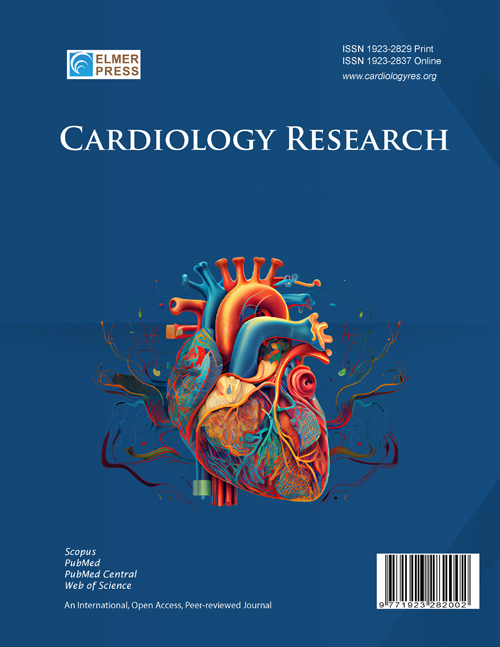Remimazolam for Procedural Sedation During Cardioversion
DOI:
https://doi.org/10.14740/cr2080Keywords:
Remimazolam, Cardioversion, Procedural sedation, BenzodiazepineAbstract
Background: Remimazolam is a benzodiazepine with sedative, anxiolytic, and amnestic properties similar to those of midazolam. However, its elimination is novel as it undergoes metabolism by tissue esterases with a half-life of 5 - 10 min and a limited context-sensitive half-life, thereby resulting in a rapid dissolution of its clinical effects. Initial clinical work has demonstrated its efficacy for the induction of general anesthesia, as an adjunct to maintenance anesthesia, and for procedural sedation.
Methods: We retrospectively reviewed our experience with the use of remimazolam for sedation during cardioversion in adult patients.
Results: The study cohort included six patients, ranging in age from 22 to 68 years. Intravenous remimazolam was the primary agent for all procedures. All six patients received a single bolus dose of remimazolam while two patients received a continuous infusion after the bolus dose. Two patients received adjunctive agents (fentanyl 100 µg). No clinically significant respiratory or hemodynamic adverse effects were noted in any patient. Adequate amnesia was achieved as none of the six patients recalled the cardioversion.
Conclusion: Our preliminary experience demonstrates that remimazolam may be an effective agent for sedation during cardioversion without significant impact on hemodynamic or respiratory function. In adult patients, a single 5 mg bolus dose of remimazolam provided effective amnesia and sedation for the procedure.

Published
Issue
Section
License
Copyright (c) 2025 The authors

This work is licensed under a Creative Commons Attribution-NonCommercial 4.0 International License.









